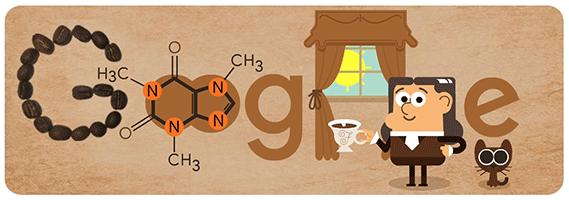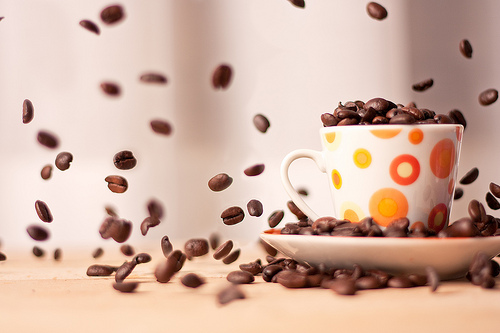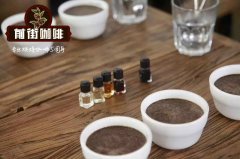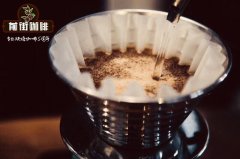Coffee has become a scapegoat! Caffeine, which was discovered 200 years ago, is not that bad.

Professional coffee knowledge exchange more coffee bean information please follow the coffee workshop (Wechat official account cafe_style)
When drinking coffee, people are more or less concerned about how much caffeine is in their drink and what effect it will have on their health.
Recently, Google's Google Doodle (logo Animation Graffiti) theme is Friedrich, a German chemist who discovered caffeine more than 200 years ago. Fehdinan. Friedlieb Ferdinand Runge.
In 1819, Langer was said to have been advised by the great writer Goethe to analyze the chemical composition of coffee beans. Then, for the first time, it found a sobering compound and isolated it, calling it caffeine.

Coffee, the drink most closely related to caffeine, often becomes a scapegoat for insomnia. Whenever someone can't sleep, he will operate on coffee. Actually, we need to get to know caffeine more seriously.
Let's first take a look at the main refreshing mechanism of caffeine:
The chemical structure of caffeine is very similar to that of adenosine, which is the main component of the energy carrier adenosine triphosphate (ATP) in cells. After adenosine binds to adenosine receptors on neurons, receptors slow down the activity of central neurons, a process that usually occurs during sleep and sleep. The reason caffeine is refreshing is that it blocks the binding of adenosine to the receptor, keeping neurons active.

Mccully of Harvard Medical School in the United States believes that the accumulation of adenosine in the brain is related to the sleep cycle. After we ingest a caffeinated drink, caffeine enters the brain, reducing the binding of adenosine to the receptor. However, the amount of adenosine has not actually decreased, and once caffeine is metabolized, the accumulation of adenosine will deepen drowsiness. Therefore, caffeine can only delay sleep, but does not reduce the amount of sleep needed.
Second, caffeine is actually not that bad!
In fact, many medical studies and reports have pointed out that caffeine is a common additive in modern food and beverage. If you avoid it, you might as well calm down and see what benefits caffeine does to your body.

Reduce the probability of tinnitus: currently, studies have been done on women, drinking 2 cups of coffee a day can effectively reduce the probability of tinnitus by 15%.
Metabolic rate: for every 100 milligrams of caffeine, drinking caffeine increases the metabolic rate by 4%. This is why refreshing drinks and painkillers contain caffeine to make the drug act quickly and as an appropriate addition.
Anti-depression: coffee that feels a little high after drinking, actually because it has the right amount of caffeine, which stimulates your brain to transmit serotonin and dopamine. in addition, drinking coffee can also create a pleasant mood for the drinker's occasion (such as afternoon tea with friends).
Asthma: caffeine can relieve asthma and relieve bronchopulmonary dysplasia.
Refreshing: for the same reason as serotonin and dopamine mentioned earlier, drinking the right amount of coffee before work can stimulate the brain and get the body to work quickly.
Stimulating hair growth: there are many "caffeinated" shampoos on the market because caffeine can effectively stimulate the growth of hair follicles and inhibit the negative effects of testosterone on the proliferation of keratinocytes (inhibiting hair follicles). Because the caffeine you drink has a limited effect on hair follicles, there are products like "caffeine shampoo".
Is the amount of caffeine related to the variety of coffee beans?
We often see "100% Arabica" on the coffee bean package. what does that mean? Let's start with the comparison of bean caffeine. Arabica beans generally taste better and sweeter than Robusta beans, and the most important reason is the amount of caffeine.
The same number of grams of "Robusta beans" in bitterness and caffeine content is about 3 times that of "Arabica beans", so most coffee beans will choose "Arabica"; the fastest way to tell them is to look at the size of the beans, although the beans shown below look about the same size, but in fact "Robusta" is very stout, about 110% more.

So the same 20g Arabica beans contain much more caffeine than Robusta beans, and friends with poor caffeine metabolism are advised to avoid excessive intake.
In the final analysis, how many cups of coffee a day is better?
How many cups of coffee are the safest to drink that day? The editor feels that there is no standard answer and should be judged according to his personal physical condition. It is generally recommended that adults drink no more than 500ml (about 1 Murray 2 cups) or caffeine no more than 400mg.

Unless you drink every morning, noon and evening, and your body is used to caffeine, you also know the truth of "things go to extremes". Xiaobian himself is a coffee drinker and will drink at least 2 cups (360 milliliters) a day. However, you are not advised to drink a lot of it in a short period of time.
Important Notice :
前街咖啡 FrontStreet Coffee has moved to new addredd:
FrontStreet Coffee Address: 315,Donghua East Road,GuangZhou
Tel:020 38364473
- Prev

The success of Blue bottle Coffee strictly controls the quality of coffee beans and promises to bake within 48 hours.
Professional coffee knowledge exchange more coffee bean information Please follow the coffee workshop (Wechat official account cafe_style) insists on giving coffee lovers a unique experience in terms of coffee quality. The quality of raw beans was controlled from the coffee producing area, and only a single variety of raw beans of origin was selected for light baking. In order to let customers enjoy the freshest coffee beans and highlight the coffee flavor, Blue Bot
- Next

What are the characteristics of Mexican coffee? does Mexican sunny coffee taste good with cream egg yolk?
Professional coffee knowledge exchange more coffee bean information please follow the coffee workshop (Wechat official account cafe_style) Mexico, is a federal republic in North America, the north borders the United States, Mexico grows a large number of tequila taller than people, and tequila is used to make wine, tequila is the national wine of Mexico, known as the soul of Mexico, is in Mexico
Related
- How did the Salvadoran coffee industry develop in Central America?
- What exactly does the golden cup extraction of coffee mean?
- The Origin of Coffee flower
- [2023 Starbucks World Earth Day] there are more meaningful things besides free Starbucks coffee!
- What kind of coffee is there in Spain? 9 Flavors of Spanish Coffee
- Aromatic African coffee| Kenya's coffee culture and historical production area
- Liberica Coffee Bean knowledge: the characteristics of Liberian Coffee beans of the three original species of Coffee beans
- The origin and formula of Spanish latte introduces the taste characteristics of Bombon coffee in Valencia, Spain.
- How to adjust the solution of over-extracted coffee
- What is the tasting period of coffee beans? What is the period of coffee and beans? How should coffee wake up and raise beans?

